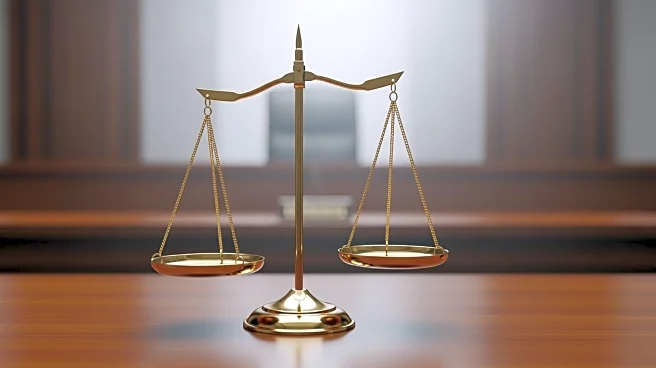What's Happening?
The Supreme Court recently heard arguments regarding President Trump's use of emergency powers to impose worldwide tariffs. The case centers on whether the President exceeded his authority under the 1977
International Emergency Economic Powers Act (IEEPA) by declaring national emergencies to justify tariffs on countries like Canada, Mexico, and China. The court's conservative and liberal justices expressed skepticism about the administration's interpretation of the law, which traditionally grants Congress the power to impose tariffs. Justices Amy Coney Barrett, Neil Gorsuch, and Chief Justice John Roberts, among others, questioned the administration's stance, highlighting concerns about the separation of powers and the historical context of taxation authority.
Why It's Important?
The outcome of this case holds significant political and financial implications. Tariffs have been a cornerstone of President Trump's economic and foreign policy, and a ruling against him could undermine his administration's approach to international trade. The decision could also set a precedent for the limits of presidential power, particularly concerning economic measures without congressional approval. Industries reliant on international trade, as well as foreign relations, could be affected by the court's decision, potentially altering the U.S.'s trade dynamics and economic strategies.
What's Next?
The Supreme Court is expected to issue a decision more quickly than usual, given the expedited schedule of the case. The ruling could come within weeks, potentially impacting ongoing trade negotiations and the administration's future use of emergency powers. Stakeholders, including businesses and foreign governments, are likely to closely monitor the outcome, which could influence trade policies and economic strategies moving forward.
Beyond the Headlines
This case raises broader questions about the balance of power between the executive and legislative branches. The court's decision could redefine the scope of presidential authority in economic matters, influencing future administrations. Additionally, the case highlights the ongoing debate over the use of emergency powers and their implications for democratic governance and accountability.











